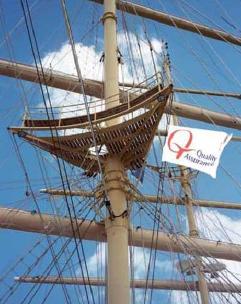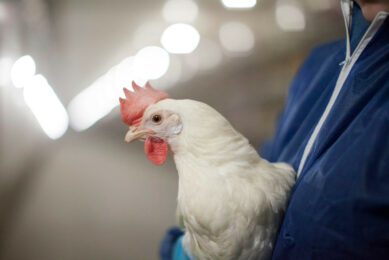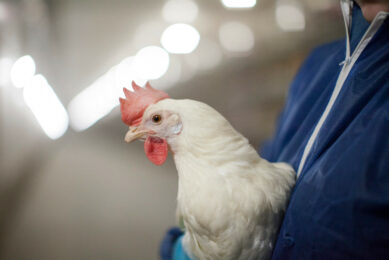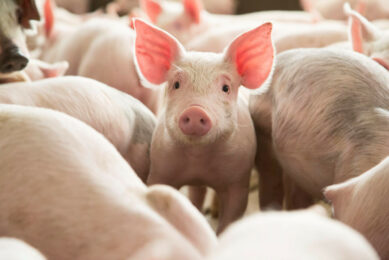What really matters: Quality and regulatory affairs

Mature animal feed markets have become accustomed to a well-established balance of supply and demand. This equilibrium is severely affected by outbreaks of animal diseases or feed contamination. Quality control has never been as important and it can be the backbone of a company’s marketing strategy.
By Marc Stephens, feed industry analyst
After a succession of contamination crises during the 1990s, an effort was made to eliminate risk in animal feed supply. Instead of investing energy and resource in the outright prevention of contamination, the animal nutrition industry has spent the years since BSE putting in place processes that enable to manage that risk, and limit the damage should contamination occur. Producers of animal feed or feed additives must adhere to strict regulation if they are to earn credibility. However, as the recent dioxin crisis in Ireland has demonstrated, total risk elimination is not possible. Much vaunted ‘farm to fork’ traceability proved to be impossible when pursuing the food chain back upstream beyond the meat processor.
The Irish government implemented a total recall of pork products, both at home and overseas. 100,000 pigs were slaughtered. A small-time operation – a supplier of tainted oil as far upstream in the feed manufacturing process as is possible – was responsible for damages running into hundreds of millions of euros and shouldered by the taxpayer. And yet, for a majority of nutritionists, quality is the most important factor when selecting a feed additive supplier. Alltech has always invested in quality assurance and risk management, resulting in the Alltech Quality System (AQS).
Safety, traceability and consistency
AQS is at the heart of the company’s brand proposition, endowing its product family with safety, trace-ability and consistency. The system came about as Alltech realised it could no longer effectively enforce a number of heterogeneous regional quality assurance systems across its operations. The complexity of managing a number of competing systems or to totally rely on Certificates of Assurance from suppliers left room for error, which was unacceptable.
AQS was conceived to deliver the exact same level of quality assurance in every geographical market based on uniform process, meeting and exceeding other systems of certification. Developed from its Kentucky, USA facility, the system began as an amalgam of numerous feed industry standard Operating Procedures (SOP). EU feed certification, such as FAMI-QS or FEMAS enabled the company over time to cherry pick the best elements of various industry-driven feed quality systems in place. Each of Alltech’s production sites was asked to adopt its manufacturing process in line with the SOP, or to create an entirely new process if one did not exist. By June 2008, AQS was fully implemented in all production sites. Company-wide third party certification by food safety expert SAI Global is expected to help that process along. AQS is sufficiently robust for external, independent certification.
The company’s approach when it comes to auditing its own facilities is exactly the same as that adopted towards suppliers: neutral and exhaustive. AQS means that all sites meet and exceed the requirements of all external certification. Raw materials used in the manufacture of products conform to the highest specification. Indeed, one of the goals the recently-opened dedicated Nutrigenomics Research Centre in Kentucky is the development of analytical procedures to a level of parts per quadrillion if required – in a matter of minutes rather than days. Products manufactured outside the company’s largest markets, the United States and European Union, are subject to regulation in place in those markets. For example, that the yeast production facility in Parana State, Brazil, has been audited by inspectors from the EU, and declared fit for purpose.
Owning the chain
“First and foremost, quality assurance is a sales tool for us”, says Becky Timmons, Director of Quality. “It’s about spreading the word. We have invested in educating our sales force in the importance of quality, which has become synonymous with the brand. The sales force is our ambassador.”
Alltech is unique in the feed industry in that the company owns practically all of its supply chain, from yeast and enzyme production downstream. Only a limited number of products, such as bulking agents, are sourced externally. Naturally, this provides optimal traceability. “Our raw materials are the most important components of the supply chain”, says Timmons. “They have to be good.” Quality assurance manager Matthew Russell provides an example. “Take our live yeast culture. We can trace that product to a yeast strain inoculated onto a plate to start the first generation of a culture.” Alltech is no stranger to the implementation of stringent regulation. A number of the company’s North and South American production facilities are EU-approved – that is, product manufactured there is authorised for shipment and sale to member states. More are in the process of receiving authorisation. “Quite simply”, says Russell, “we have to drive certification just to be able to do business in our largest market, Europe.”
Regulatory culture
Dr Gérard Bertin is manager of EU regulatory affairs at Alltech. Driving certification is his business. Bertin works with the stakeholders on the initialisation and construction of regulatory texts; he also maintains an extensive contact network across agriculture ministries in the EU’s 27 member states.
The consumer is at the heart of the EU model, and is thoroughly protected. A product now has to be traceable from production to destruction. On the downside, this does mean that constraints on the producer will become ever greater. But that is the price to pay for consumer safety.”
Bertin sees more and more common ground, however, between the EU and United States. In the longer term, he hopes the two will merge to create a common regulatory platform which would serve as a model for others regions and emerging economies.
Creed of credibility
Behind the drive to achieve excellence in the feed industry is a change in consumer attitudes towards food safety and origin. Timmons: “Twenty years ago, quality was a yeast count, or what was on the label. Then ISO arrived. In the last few years, quality has become a major driver in the industry in the wake of various feed and food safety scandals.”
“Take the 2007 melamine-in-petfood scandal in North America. There were three times more calls to the US Food and Drug Administration than during the contaminated spinach episode the previous year. Specifications and expectations have grown in complexity, pushed by the 24*7 news media.”
Steve Traylor, Alltech’s global director of regulatory affairs, sums up the change in attitudes. “To succeed and earn credibility in the feed industry, you need to be a reputable company. You need to be seen to be clean. There’s been a tangible shift in consumer behaviour. Demand for organic and natural products has exploded. A successful trial or approvals dossier is a valuable marketing tool, which alone justifies our investment in regulatory affairs.”
Alltech has a representation on key industry bodies. “As a result”, says Traylor, “these important organisations understand our business and are integrated into the regulatory process from the get-go.”
The quality of raw materials in the feed industry emanating from third countries still remains problematic. The implementation of a global homogenous regulatory approach could go some way to resolving this, Bertin believes.
“There’s still plenty to do, and the work of organisations such as FAMI-QS is instrumental. Take the example of China where more and more feed-related companies are becoming FAMI-QS certified. There’s an eagerness to learn.”
Supplier Accreditation
Alltech is in the midst of strengthening its external audit system – that is, the audit of the company’s suppliers – with the creation of a three-tier accreditation programme. The programme will complement AQS as a cornerstone of quality assurance.
Russell explains that many of Alltech’s suppliers are not feed companies. “They’re not always aware of how stringent feed regulation is. In some cases, we will embed quality specialists with suppliers in order to educate them on the process.”
Suppliers will be given the opportunity to join the programme with the aim of becoming a top-tier Certified Supplier, following a formal audit by Alltech and external quality experts from organisations such as FAMI-QS. Given the meagre percentage of raw material sourced from outside the company, the investment required by the accreditation programme could be seen as disproportionate. But as Timmons explains, the programme exists to mitigate the company’s exposure to risk, however negligible, caused by the rise of emerging market suppliers.
“We require a cast-iron guarantee that raw materials sourced from outside the company conform to the strictest certification. Country of origin labelling and ‘audit trail’ traceability are minimal requirements”, says Timmons.
In return, Alltech gets the peace of mind it requires as a global player with a reputation for total quality. "We set the direction we’d like our suppliers to take, and clearly certification is in everybody’s interests.”
Feed tech Vol. 13 No. 3, 2009











